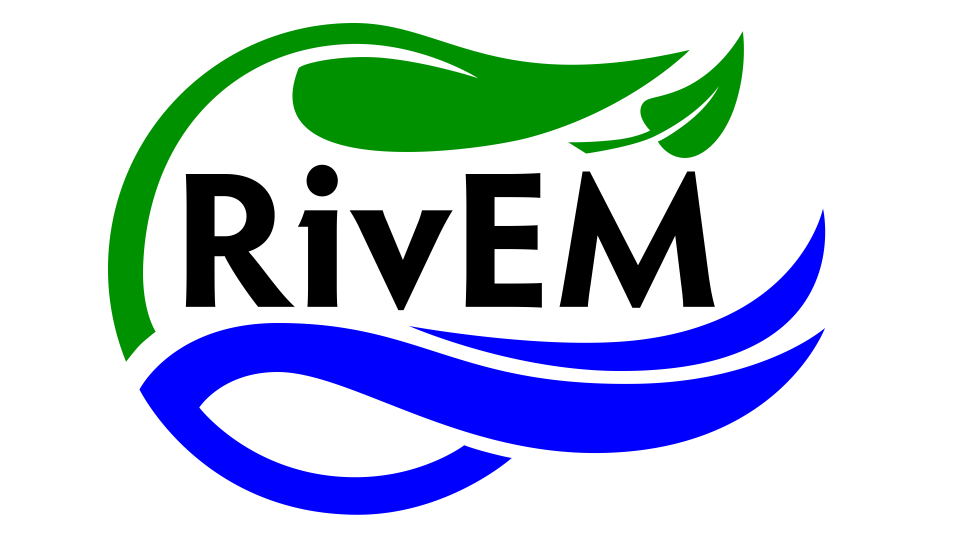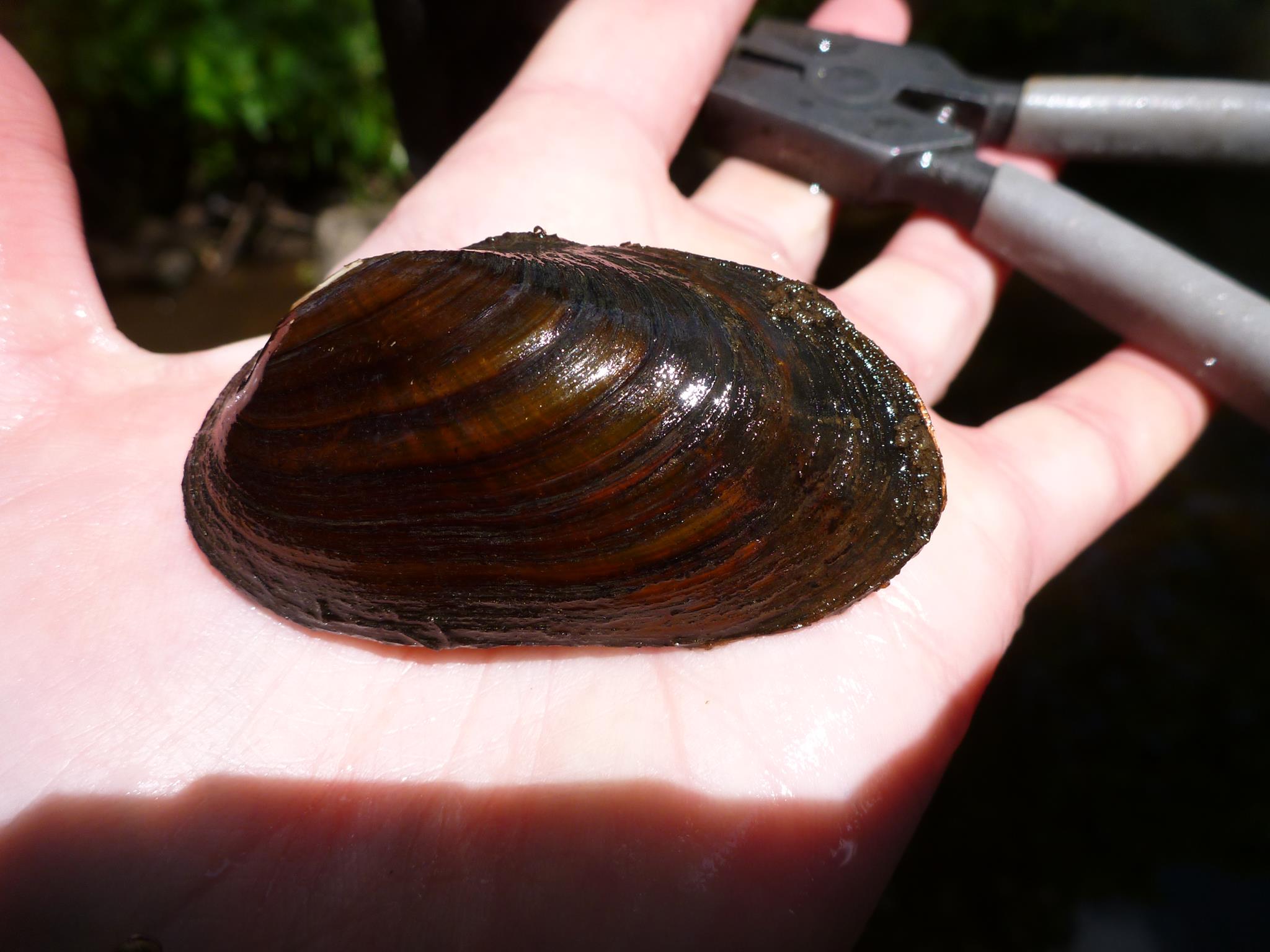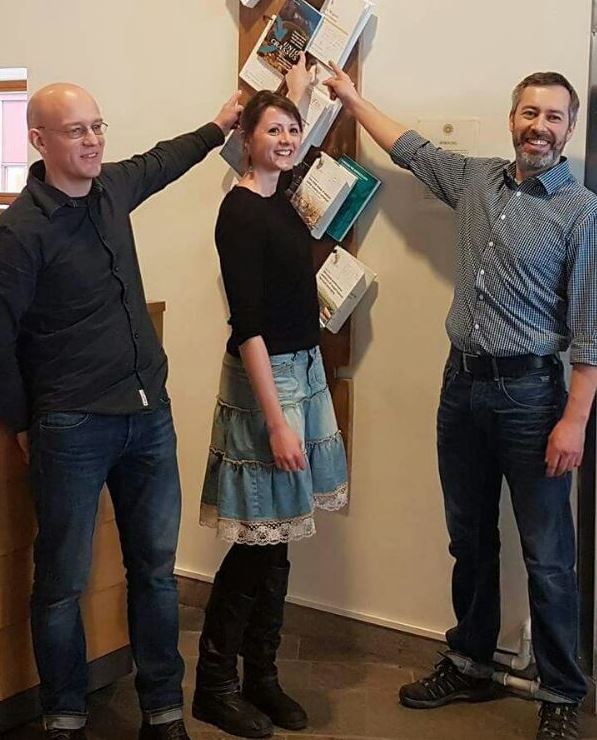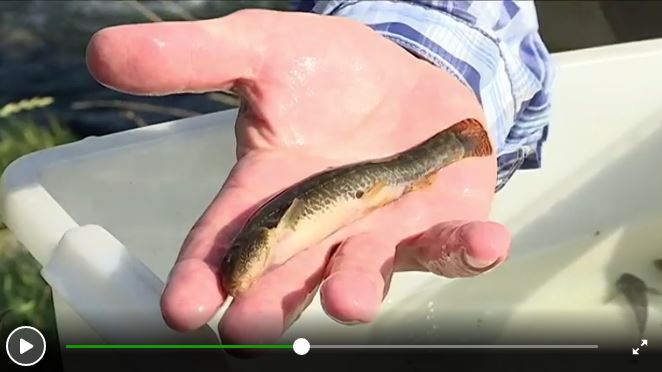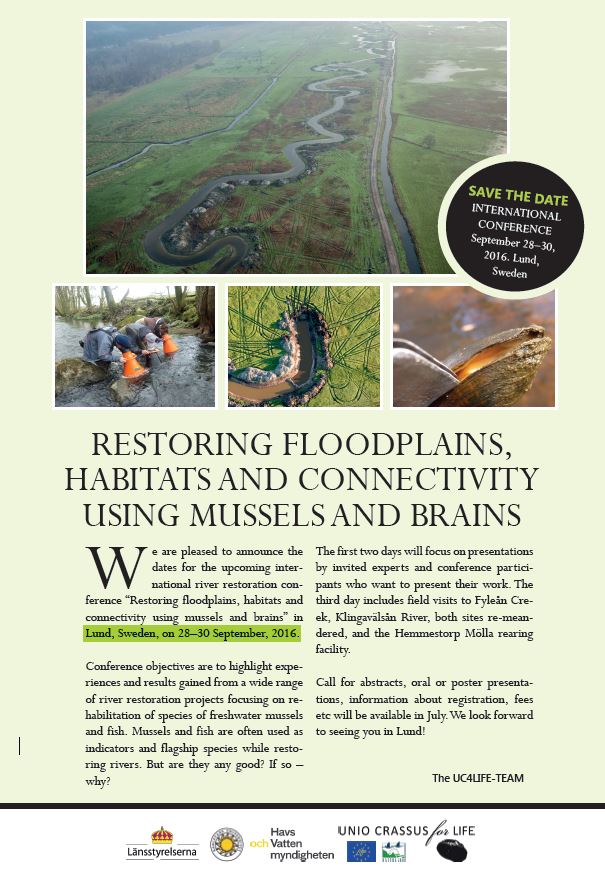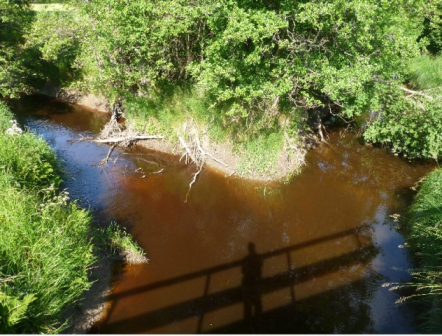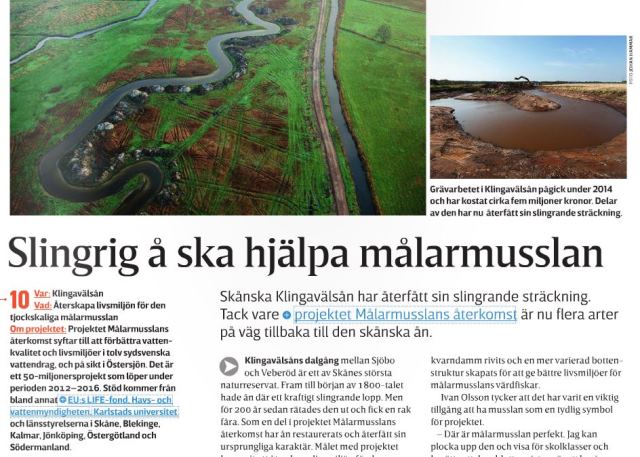Unio crassus for life nominated as one of the best EU life projects
Posted by Karl Filipsson | Projekt Målarmusslan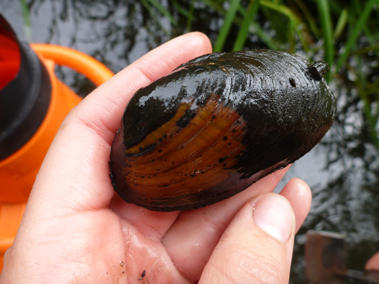
A thick-shelled river mussel, Unio crassus
Between 2012 and 2016, researchers at Karlstad University have worked together with several county boards in southern Sweden in the EU-funded life project “Unio crassus for life” (målarmusslans återkomst). The thick-shelled river mussel (Unio crassus) is one of the most threatened bivalve species in Europe. In Sweden, the distribution of the species has decreased with 50% over the last 100 years.
In twelve streams in southern Sweden, a total of 300 km has been restored as part of the project to improve the habitat for the mussel. The project has also examined what fish species that are suitable hosts for the obligate parasitic larvae of the thick-shelled river mussel. Species like minnow (Phoxinus phoxinus), bleak (Alburnus alburnus) and bullhead (Cottus gobio) seem to be important hosts for the mussel. In addition, juvenile mussels have been reared in captivity with the aim to successfully reintroduce them into the wild.
The project has been very successful, and has now been nominated as one of the best EU life projects. The ceremony where the best project will be awarded is held in Brussels 23 May. Martin Österling, associate professor at Karlstad University, will attend the ceremony. We wish Martin and all other people that have worked on the Unio crassus for life project the best of luck, and we keep our fingers crossed that Unio crassus for life will be awarded the best EU life project.
Read more about the project at the Unio crassus for life official web page, or on the Skåne and Södermanland county board web pages.
The project has also gotten publicity in media, and you can read more about the project on svt or Smålands-tidningen.
Watch a short film about the project here.
